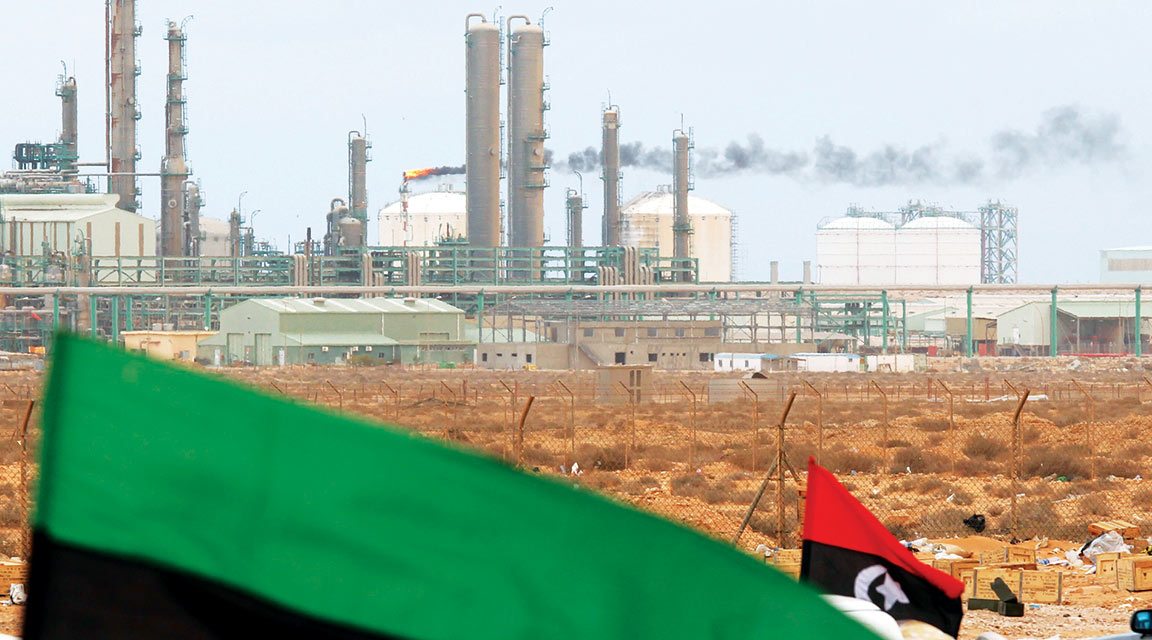

Libya’s National Oil Corporation (NOC) chairman, Mustafa Sanalla, has warned against attempts to ransom the country’s largest oil field, saying it would set a dangerous precedent, encouraging further attacks on its oil infrastructure.
Paying any ransom “imperils Libya’s recovery and the funds would be better spent investing in communities and providing basic services to the most vulnerable”, Sanalla said in a letter to the internationally recognised Presidency Council in Tripoli.
NOC said it would not restart production at the 350,000 barrels a day (b/d) Sharara oil field in the southwestern Murzuq basin or lift force majeure on crude exports from the Zawiya oil terminal, even if ransom payments were made by the Ministry of Finance.
Sanalla also wrote to Libya’s Public Prosecutor’s office, along with the State Audit Bureau, Ministry of Defence and Administrative Control Authority.
“Rewarding this illegal action with direct payment will only create more problems and encourage further blockades. It would endanger the lives of oil-sector workers, promote violence and create more uncertainty,” Sanalla said.
“Paying off this militia will not solve the real problems of the South. That requires an action plan that deals with real local problems and systemic economic deprivation. But this support must be based on their needs, not as a reaction to threats or blackmail,” added Sanalla.
NOC shut down production and declared force majeure on 10 December after protestors took over Sharara oil field. NOC blames an armed militia attached to the local Petroleum Facilities Guards for the shutdown. This also led to the closure of the nearby El-Feel oil field, which produces another 73,000 b/d, but relies on power from Sharara for its operations.
“The militia occupying Sharara is breaking the law. They have threatened NOC staff with violence and they are preventing us from producing and exporting the oil on which our country depends. Libya should learn the lessons of the criminal Jadhran who was paid ransoms and still cost Libya billions in lost revenue.”
Libyan oil production had been averaging approximately 1.3 million b/d, the highest level in years, before the closures brought this figure down by about 30 per cent. Sanalla has estimated the closures will cost Libya more than $32m in lost revenues each day.
Before the revolution, Libya was able to produce 1.6 million b/d. However, the sector has been marred by volatile output since then, due to attacks on its facilities by rival militias, protests and the lack of storage at Libyan export terminals.
In an attempt to quell unrest in the southern region, NOC announced plans in November to install an old, 55,000 b/d refinery, currently in Switzerland. This will at least help resolve the fuel shortage crisis and create new economic opportunities in the restive region, which is key to Libya’s oil production.
The plan involves relocating the 55,000 barrel a day (b/d) Collombey refinery, which was built in the 1960s. It is owned by Libya’s Tamoil, and had employed about 250 staff before its closure in 2015. Tamoil itself is owned by the Libyan Investment Authority, the state’s sovereign wealth fund.
The absence of state authority in the south and west of Libya has allowed the development of illicit markets and a vibrant smuggling sector for both fuel and the trafficking of migrants.
Numerous fuel trucks heading to southern Libya have been hijacked, which has led the NOC to provide armed escorts on some occasions. The fuel is then sold on, often at more than six times the normal subsidised price, or diverted out of the country.
You might also like...

TotalEnergies to acquire remaining 50% SapuraOMV stake
26 April 2024

Hyundai E&C breaks ground on Jafurah gas project
26 April 2024

Abu Dhabi signs air taxi deals
26 April 2024

Spanish developer to invest in Saudi housing
26 April 2024
A MEED Subscription...
Subscribe or upgrade your current MEED.com package to support your strategic planning with the MENA region’s best source of business information. Proceed to our online shop below to find out more about the features in each package.




